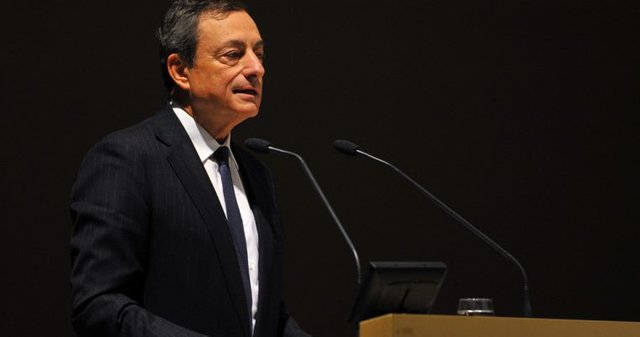
The president of the European Central Bank has publicly stated that European banks could hold positions in bitcoin after developments such as Bitcoin futures contracts listings by US exchanges.
While delivering the opening statement and closing remarks at a European Parliament meeting this week, European Central Bank (ECB) president Mario Draghi weighed in on the topic of cryptocurrencies referencing their discussions by other speakers during the meeting. The ECB chief revealed the authority hadn’t observed any current trend of European banks holding cryptocurrencies. More pointedly, financial institutions in the European Union “are showing a limited appetite for digital currencies like Bitcoin” he said, adding this is currently the case despite a heightened public interest and appetite for cryptocurrencies.
That trend could change with the advent of cryptocurrencies permeating into mainstream finance, the central banker admitted.
Draghi stated:
“However, recent developments, such as the listing of Bitcoin futures contracts by US exchanges, could lead European banks too to hold positions in Bitcoin, and therefore we will certainly look at that.”
It’s a noteworthy statement from Draghi, despite following up the remark by deeming “unregulated” Bitcoin and cryptocurrencies as “very risky assets” where banks should proactively consider risks if they decide to include cryptocurrencies within their portfolio. To the contempt of many Wall Street banks, the world’s largest derivatives exchange – the CME Group, listed bitcoin futures contracts in mid-December after cross-town CBOE led the way with its own listing a week prior.
The EU central banking head also hinted at an upcoming uniform oversight via a ‘Single Supervisory Mechanism’ to oversee digital assets’ risks toward supervised institutions, or banks.
Draghi has previously stated that the ECB does not have the authority to regulate bitcoin but his remarks this week suggest a more supervisory – not regulatory – approach to bitcoin and cryptocurrencies adopted or allowed among EU banks and possibly nations. Somewhat contradictorily, Draghi also suggested – later that month in October 2016 – that cryptocurrencies hadn’t matured enough for the ECB to consider regulation.
In November, Draghi added that bitcoin and the wider cryptocurrency sector’s impact was “pretty limited” and did not pose any risks for central banks as decentralized cryptocurrencies that fundamentally reject the control of money supply through a few institutions.
Hi! I am a robot. I just upvoted you! I found similar content that readers might be interested in:
https://www.ccn.com/european-banks-soon-hold-bitcoin-admits-ecb-president/
Downvoting a post can decrease pending rewards and make it less visible. Common reasons:
Submit
plz nik rab upvote plz
Downvoting a post can decrease pending rewards and make it less visible. Common reasons:
Submit